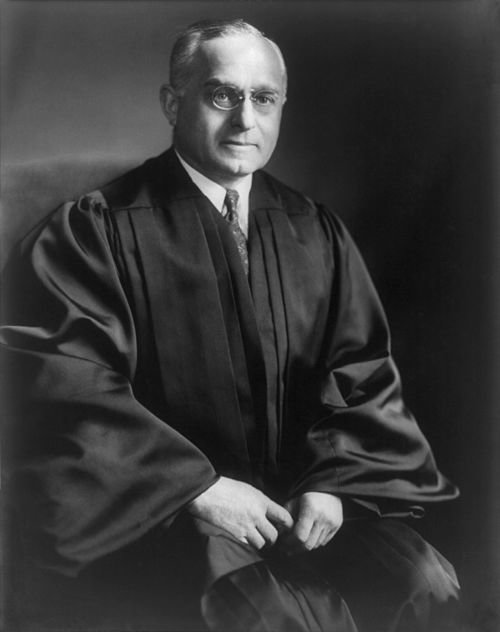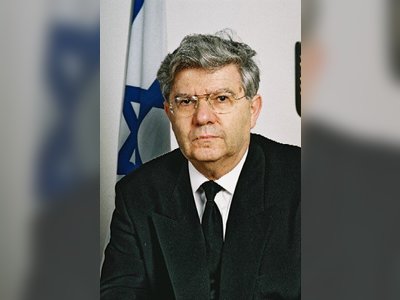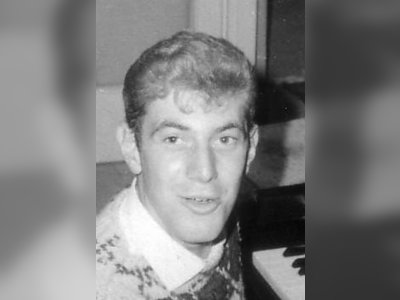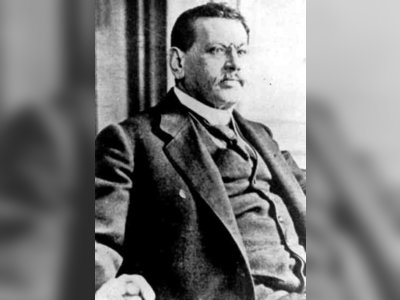מורשת גדולי האומה
בזכותם קיים
beta
Felix Frankfurter: A Judicial Legacy
Felix Frankfurter, born on November 15, 1882, in Vienna, Austria, to Jewish merchant parents, would go on to become a prominent American jurist, serving as a justice on the United States Supreme Court. His life journey, characterized by intellect, activism, and a profound influence on American jurisprudence, is a testament to his enduring legacy.
Early Years
In 1894, at the age of twelve, Frankfurter and his family emigrated to the United States, settling in the Lower East Side of Manhattan, New York City. After completing his studies at the City College of New York, he pursued a legal education at the New York Law School. In 1902, he transferred to Harvard Law School, where he gained recognition as the editor of the Harvard Law Review, a prestigious role. His academic prowess was further honed under the guidance of his mentor, Louis Brandeis.
In 1919, Frankfurter married Marion Denman, a graduate of Smith College and the daughter of a Congregationalist minister. Despite their union, they did not have children.
Legal Career
Frankfurter's legal career began when he became an assistant to Henry Stimson, the federal attorney for the Southern District of New York, in 1906. In 1911, President Taft appointed Stimson as Secretary of War, and Frankfurter assumed the esteemed position of legal counsel for the War Department's Bureau of Insular Affairs. During World War I, Frankfurter served as a Major and legal advisor to President Woodrow Wilson's Mediation Commission.
Influenced by Louis Brandeis, Frankfurter also became increasingly involved in the Zionist movement. In 1919, he represented the Zionist Organization of America at the Paris Peace Conference, advocating for the inclusion of the Balfour Declaration in the peace agreement. In 1920, he played a significant role in founding the American Civil Liberties Union (ACLU). In the late 1920s, he actively worked to save the lives of Nicola Sacco and Bartolomeo Vanzetti, two anarchists who were convicted of murder and robbery.
Research on Criminal Justice in Cleveland
In 1922, Frankfurter and Roscoe Pound conducted a quantitative study of crime reporting in the Cleveland, Ohio newspapers. They measured the column inches dedicated to crime reports in January 1919 and found a stark contrast. In the first half of the month, only 925 column inches were allocated to crime reports, while in the second half, a staggering 6,642 column inches were devoted to the same subject. The increase in crime reporting was not commensurate with the actual number of criminal incidents during that period, indicating a media-driven narrative. Frankfurter and Pound argued that the public perception of a "crime wave" led to calls for swift and harsh law enforcement actions, potentially compromising due process.
Presidential Advisor
Upon Franklin D. Roosevelt's election to the presidency, Frankfurter became an unofficial presidential advisor. In March 1933, Roosevelt offered him the position of U.S. Solicitor General, but Frankfurter declined, preferring to serve as an "independent counselor." At the time, Frankfurter was the only Jew among the Harvard Law School faculty for 25 years.
In 1938, Frankfurter learned that his elderly cousin, a scholar in Vienna's National Library, had been imprisoned in a concentration camp. He enlisted the help of his friend Lady Nancy Astor, who approached her Nazi contacts to secure his release. In late 1938, Frankfurter's name emerged as a candidate for the U.S. Supreme Court, leading to objections by some Jewish groups.
Supreme Court Justice
On January 5, 1939, President Roosevelt nominated Frankfurter to the U.S. Supreme Court. He was confirmed and sworn in on January 30, 1939, serving until August 28, 1962.
Despite his liberal political inclinations, Frankfurter emerged as a leading voice for judicial restraint and a "hands-off" approach to constitutional interpretation. He believed that the Court should refrain from overly restricting the powers of elected officials and the executive branch, as opposed to the judicial activism advocated by some of his colleagues.
Influenced by his close friend and mentor, Oliver Wendell Holmes Jr., Frankfurter was a staunch critic of "economic due process." His jurisprudential philosophy favored government actions as long as they did not "shock the conscience."
Frankfurter was renowned for his contributions to civil law jurisprudence.
Later in his judicial career, Frankfurter's positions occasionally aligned with the minority on the Court, particularly during the tenure of Chief Justice Earl Warren. However, he strongly opposed racial segregation and joined the unanimous decision in Brown v. Board of Education (1954), which struck down racial segregation in public schools. Frankfurter supported the Morgenthau Plan, aimed at preventing Germany from participating in a potential Third World War.
Retirement
In 1962, Frankfurter retired from the bench due to a neurological ailment and was replaced by Justice Arthur Goldberg. In 1963, he was awarded the Presidential Medal of Freedom.
Felix Frankfurter passed away from congestive heart failure on February 22, 1965, at the age of 83. He was buried in Cambridge, Massachusetts.
Two substantial collections of Frankfurter's papers are preserved at the Library of Congress and Harvard University, open to the public for research. Microfilm copies are also available in other libraries.
Supreme Court Justices: Kushing • Wilson • Blair • Ayer • Thomas Johnson • Peterson • Chase • Washington • Moore • William Johnson • Livingston • Todd • Thompson • Trimble • M'Kean • Baldwin • Story • Thompson • Daniel • Nelson • Woodbury • Catron • McKinley • Davis • Field • Swayne • Miller • Bradley • Harlan (1st) • Woods • Mathews • Strong • Bradley • Harlan (2nd) • Harlan (3rd) • Blatchford • Lamar • Brewer • Brown • Shiras • White • Peckham • McKenna • Holmes • Day • Pitney • McReynolds • Brandeis • Clarke • Sutherland • Butler • Sanford • Hughes • Stone • Roberts • Cardozo • Black • Reed • Frankfurter • Douglas • Murphy • Byrnes • Jackson • Rutledge • Burton • Vinson • Minton • Warren • Clark • Harlan (4th) • Whittaker • Stewart • Fortas • Marshall • Burger • Blackmun • Powell • Rehnquist • Stevens • O'Connor • Scalia • Kennedy • Souter • Thomas • Ginsburg • Breyer • Alito • Sotomayor • Kagan
Frankfurter's legacy endures as a jurist who left an indelible mark on the American legal landscape, shaping the role of the judiciary and advocating for constitutional restraint while championing civil liberties and justice. His contributions to the Supreme Court and the broader legal community continue to be studied and celebrated for their lasting impact.
- פליקס פרנקפורטרhe.wikipedia.org






